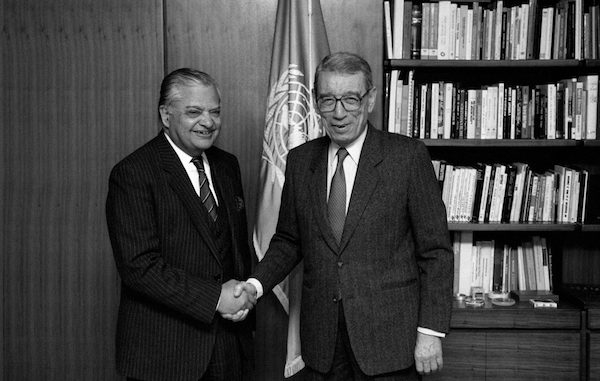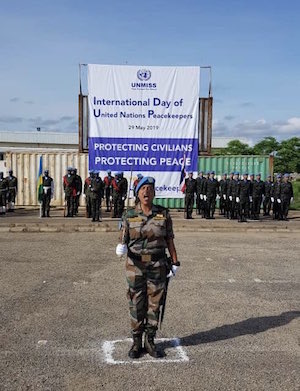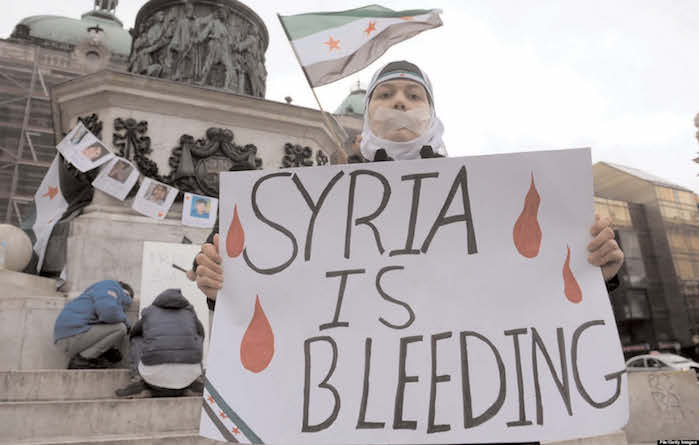

|
“The human cost of UN peacekeeping has been high. Deployed under the Blue Flag of the United Nations, UN peacekeepers have operated under volatile conditions. However, in recent years, these peacekeepers have themselves become victims of violence, making the supreme sacrifice to safeguard their mandate, and the principles of the UN Charter.” “A total of 110,000 UN peacekeepers are currently deployed across the world in 13 missions, funded by a peacekeeping budget of $6.5 billion.” “India is justifiably proud of her contributions to UN peacekeeping. She has sent the largest number of troops for UN peacekeeping from among the 193 member-states of the United Nations, with more than 200,000 troops deployed in 49 out of the 71 peacekeeping operations mandated so far by the UNSC.” |
On the International Day of UN Peacekeepers, we remember with respect the supreme sacrifice made by 3925 troops from UN member-states.
29 May 2020 is being commemorated as the International Day of UN Peacekeepers. It was on this day in 1948 that the United Nations Security Council (UNSC) attempted to innovate a mechanism to keep the peace by deploying a small number of UN military observers to monitor the Armistice Agreement between Israel and its Arab neighbors.
Since then, UN peacekeeping has been used extensively by the UNSC over the past seven decades to provide stability in conflict situations for implementing peace agreements between member-states of the United Nations, and to stabilize conflict situations within the UN’s member-states.
The human cost of UN peacekeeping has been high. Deployed under the Blue Flag of the United Nations, UN peacekeepers have operated under volatile conditions. However, in recent years, these peacekeepers have themselves become victims of violence, making the supreme sacrifice to safeguard their mandate, and the principles of the UN Charter.
India is justifiably proud of her contributions to UN peacekeeping. She has sent the largest number of troops for UN peacekeeping from among the 193 member-states of the United Nations, with more than 200,000 troops deployed in 49 out of the 71 peacekeeping operations mandated so far by the UNSC.

On the International Day of UN Peacekeepers, we remember with respect the supreme sacrifice made by 3925 troops from UN member-states.
India has suffered the largest number of casualties in UN peacekeeping among the troop-contributing member-states, with 170 fatalities in 25 peacekeeping missions. Of these, as many as 39 Indian UN peacekeepers were killed during their deployment in the Congo as part of ONUC in 1960-64.
At its 70th anniversary in 2015, the UN convened a Leaders’ Summit on Peacekeeping to take stock of the contribution made by UN peacekeeping to maintaining international peace and security. Addressing the gathering of world leaders, India’s Prime Minister Shri Narendra Modi conveyed India’s commitment to participate proactively in implementing the peacekeeping mandates given by the UNSC. He also referred to the UN General Assembly’s unanimous decision to build a Commemorative Wall in honor of the fallen UN peacekeepers from all countries and said “it would be most fitting if the proposed memorial wall to the fallen peacekeepers is created quickly”.
A total of 110,000 UN peacekeepers are currently deployed across the world in 13 missions, funded by a peacekeeping budget of $6.5 billion. As many as 54,000 troops serve in just four peacekeeping missions in Africa – MONUSCO in the Democratic Republic of Congo (annual budget $1.01 billion), UNMISS in South Sudan (annual budget $1.18 billion), MINUSMA in Mali (annual budget $1.13 billion) and MINUSCA in the Central African Republic (annual budget $ 1.2 billion).
India is a major contributor to two of these four operations, with 1864 troops as part of the 16,215 military personnel deployed on the ground in MONUSCO in the Democratic Republic of Congo and 2343 troops on the ground as part of the 13,795 contingent troops in UNMISS in South Sudan.
The increasing challenges being faced by UN peacekeeping are compounded by the growing resistance of some major powers represented as permanent members in the UNSC to contribute financial resources to sustain UN peacekeeping operations. In April 2019, the UN Secretary General Antonio Guterres had reported that over $250 million were owed to troop contributing countries, among which India was owed $38 million, the highest for any member-state.
As the United Nations prepares to mark its 75th anniversary later this year, it is time to look to the future of UN peacekeeping. Two issues are relevant in this context.
 First, it is time to augment the effectiveness of UN peacekeeping by enhancing the role played by UN women peacekeepers. 2020 marks the 20th anniversary of the landmark UNSC resolution on “women, peace and security”. India was the first UN member-state to deploy an all-women’s peacekeeping unit in Liberia in 2007. The impact of UN women peacekeepers from India in performing their mandate, as well as acting as force multipliers to sustain the resilience of national governance structures during a period of volatile conflict, has been acknowledged by President Ellen Johnson Sirleaf of Liberia, who was the first elected female head of state in Africa. Building on this experience, India has deployed her women UN peacekeepers as part of UNMISS in South Sudan, where the challenges posed by violent conflict (and their impact on women in particular) are greater.
First, it is time to augment the effectiveness of UN peacekeeping by enhancing the role played by UN women peacekeepers. 2020 marks the 20th anniversary of the landmark UNSC resolution on “women, peace and security”. India was the first UN member-state to deploy an all-women’s peacekeeping unit in Liberia in 2007. The impact of UN women peacekeepers from India in performing their mandate, as well as acting as force multipliers to sustain the resilience of national governance structures during a period of volatile conflict, has been acknowledged by President Ellen Johnson Sirleaf of Liberia, who was the first elected female head of state in Africa. Building on this experience, India has deployed her women UN peacekeepers as part of UNMISS in South Sudan, where the challenges posed by violent conflict (and their impact on women in particular) are greater.

It is a fitting tribute to India’s women UN peacekeepers that the UN Military Gender Advocate Award for 2020 has been given to Major Suman Gawani of the Indian Army. The UN highlighted that Major Gawani mentored over 230 UN Military Observers on conflict-related sexual violence and ensured the presence of women military observers in each of UNMISS’ team sites. She also trained South Sudanese government forces.
The second issue is the long overdue reform of the decision-making process of the UNSC, which decides on the mandates to deploy UN peacekeepers. This reform, mandated by world leaders 15 years ago at the 60th anniversary Summit of the United Nations, must be completed urgently if the UN is to be seen as an effective multilateral institution for maintaining international peace and security. The unprecedented challenges facing the UN today due to the Covid-19 pandemic prioritize the need to break the current deadlock in inter-governmental negotiations in the UN General Assembly. Polarization among the permanent members of the UNSC and their resistance to UNSC reform cannot be allowed to paralyze or compromise the effectiveness of the Security Council, especially when millions of lives of people caught in conflicts where UN peacekeeping missions are deployed are at stake.
(The author is a former Indian diplomat and writer. He was Permanent Representative of India to the United Nations from April 2013 to December 2015. He can be reached at 1955pram@gmail.com)




Be the first to comment